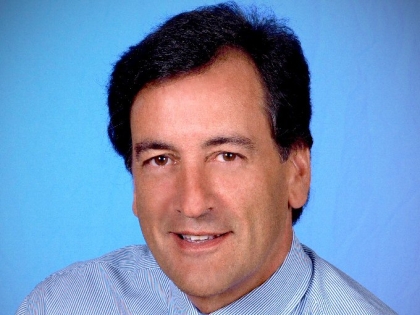
Bill to Close Loophole in State’s Dwi Laws Passed by State Legislature
Charles J. Fuschillo Jr.
June 24, 2010
-
ISSUE:
- Drunk Driving
Proposed Law Would Prevent Drunk Drivers from Using Loophole in State Law to Escape Justice
New York State Senator Charles J. Fuschillo, Jr. (R-Merrick) today applauded the Assembly for joining the Senate in passing legislation he sponsored to close a loophole in the state’s DWI laws which is allowing many drunk drivers to escape justice, even if they kill innocent people. Assemblyman Harvey Weisenberg (D-Long Beach) is the sponsor of the legislation in the Assembly.
Current state law contains an unnecessary restriction forbidding certain trained medical personnel, such as advanced emergency medical technicians, from withdrawing blood to determine alcohol or drug content without having a physician present. Drunk drivers have used this technicality in the law to have their blood evidence thrown out and escape prosecution.
Senator Fuschillo, said, “Legal loopholes should not allow drunk drivers who cause crashes and kill innocent people to escape prosecution. There are numerous licensed health professionals who are fully trained to take blood to determine alcohol content without the presence of a physician. I am pleased that the Senate and Assembly have joined together in approving this legislation to help bring drunk drivers to justice. Governor Paterson should sign it into law when it reaches his desk.”
“Current law does not fully ensure the prosecution of those who kill or injure others due to drunk driving. Our medical facilities are staffed with trained, licensed people who can withdraw blood. To require that only a physician can perform or supervise this task is woefully inadequate. This new law will ensure that evidence needed to prosecute will be gathered in a responsible, secure manner,” stated Assemblyman Weisenberg.
The legislation being sponsored by Senator Fuschillo and Assemblyman Weisenberg (S.46B/A8601B) would:
* Expand the list of personnel who are allowed to withdraw blood without supervision if directed by a police officer. Currently, only physicians, registered professional nurses, and registered physician assistants are permitted to withdraw blood from an intoxicated driver without supervision. The proposed law would also extend that authority to certified nurse practitioners and advanced emergency medical technicians.
* Allow other medical personnel who are trained to draw blood, such as clinical laboratory technicians/technologists, phlebotomists, and medical laboratory technicians/technologists, to withdraw blood at the request of a police officer, as long as they are under the supervision & direction of a physician, registered physician assistant or certified nurse practitioner or receive the consent of the adult from whom the blood is being drawn.
In New York State, there are numerous examples of the ongoing difficulties that law enforcement face in prosecuting DWI cases under current state law. The case surrounding the death of Jack Shea, the patriarch of a three-generation Olympic family who won his gold medals in speed skating in the 1932 Olympic Games, is one of the more well-known examples.
Jack Shea, after whom the legislation is named, was killed on January 23, 2002 in a collision with the drunk driver near his home in Lake Placid. No doctor was on duty at the small regional clinic where both Shea and the drunk driver were brought for treatment after the crash. The physician’s assistant and the registered nurse on duty treated Shea, the more severely injured of the two, and an advanced emergency medical technician drew the driver’s blood at the request of a police officer. The drunk driver consented, and his level showed a .15 BAC.
Because there was no doctor present and the severity of Mr. Sheas injury kept the physician’s assistant and registered nurse from withdrawing the blood, ultimately, the district attorney was not able to use the blood as evidence and the charges against the driver were dismissed. The district attorney appealed the ruling but the Appellate Court felt compelled to uphold the suppression of evidence due to current law. The Appellate Judge, however, called on the Legislature to amend the statute to remedy what they saw as an unnecessary restriction in the law.
The legislation is supported by the District Attorney’s Association of the State of New York. In a memo of support the Association stated that the legislation was “critical” and would “assist [district attorneys] in the proper prosecution of drunk drivers.”
“Thanks to this critical piece of common-sense legislation, there is now one less rock for drunk drivers to hide under. Drunk drivers continue to terrorize our roadways, end lives, and destroy families and those who kill must be held accountable for their reckless and violent actions. This legislation offers prosecutors yet another tool to effectively do our job, and I strongly encourage Governor Paterson to sign it into law as soon as possible,” said Nassau County District Attorney Kathleen Rice.
The legislation will be sent to Governor Paterson.
# # #
Share this Article or Press Release
Newsroom
Go to Newsroom

